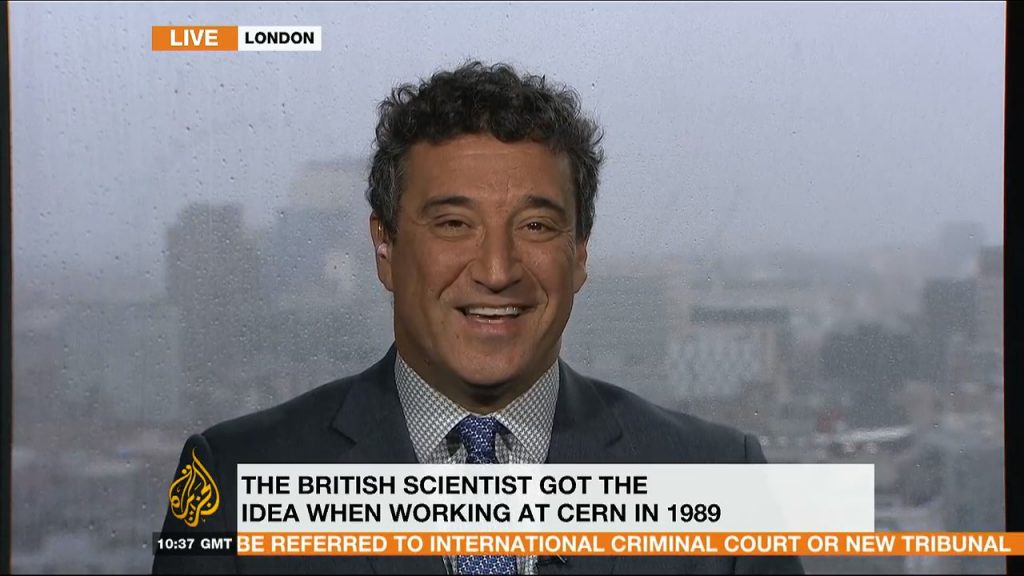This week, Yair Cohen was interviewed on Al Jazeera TV and was asked by the host: ‘Do you think that the expectations of the egalitarian nature of the internet were too high?’
Yair: ‘I think that the internet, in the early days, was seen almost as an anarchistic place. The idea of the bureaucracy meant that at that time, there was more of an expectation that the people from the government shouldn’t be setting foot on there; almost like it was a place free of law. That was during the first 10-15 years of the internet.
Then, the whole idea of democracy started to mean something totally different; almost like an uprising – the people versus the government. Whilst, democracy as we know it; what it really means is that people are ruled by the government and people are uprising against the government. So, I think what we are seeing now is more involvement from the government on the internet and there are some people that are not welcoming this.
They feel that there should be democracy there. The way I see it is a restoration of the rule of law and creating safer harbours for people to be able to freely express themselves within certain boundaries.’
AJ TV: ‘The key question and I am asking you this as an harassment lawyer, is – How do you police something that is so vast, so disparate and yet also contains so many dark and deep areas?’
Yair: ‘Well, if you take a big city such as Los Angeles – the town is not being policed precisely in the same way in every quarter, and every building, every alley and every area. There are certain places where police don’t really go and there are places where there is more police presence. I accept that the internet cannot be entirely policed.
The interesting thing is that when you have a company such as Google, which operates worldwide, Google then becomes the collector within all the different countries, so once say the UK or the EU government are able to influence Google’s behaviour, within the locality, within the UK or Europe, that influence almost becomes viral and it means that Google needs to go and change the way it does things all over the world. So, in a way, global companies are the key to spreading better policing on the internet.’
AJ TV:’How much responsibility do we, as users, have when it comes to what we watch on the internet and reporting things that we regard as offensive or possibly criminal, or have we actually abdicated all of that responsibility and we are just allowing ourselves to be fed with all of this information, as long as it panders to the beliefs that we have?’
Yair: ‘That is a very good question. I think for many years we have been left to fend for ourselves on the internet. There wasn’t anyone to help or protect or anywhere to go to. What we need to ask is how would we behave if an event occured offline, on the street, if we saw a person being bullied or being assaulted or even a person that was being encouraged to commit suicide, or that type of thing. How would we react, then? We should be reacting precisely the same way on the internet. I think it is become more acceptable for us to say that we don’t accept this type of behaviour; we don’t want to part of this and we don’t want to be part of that. So, there is a lot of responsibility laid on us as people when we see the support of the government and government agencies, it makes life much easier and much safer for say a woman, children, ethnic minorities that previously did not feel safe with the room of the internet.’
AJ TV: ‘Yair Cohen, thanks very much indeed.’ You can see the whole interview here: https://www.internetlawcentre.co.uk
Read Yair Cohen’s powerful debate about the future policing of the internet in his book: Net Closing – Birth of the E-Police:

